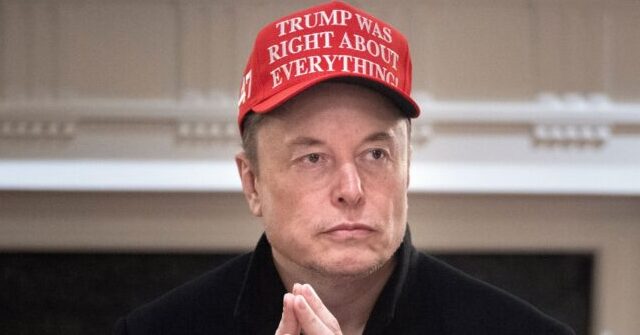Tesla shares plunged Thursday as Elon Musk’s public attacks on the Trump administration’s tax cut package escalated into a political and financial rupture with President Donald Trump, triggering a $180 billion drop in the company’s market value.
The stock closed down more than 14 percent—its steepest one-day loss this year—and is now off 33 percent since Inauguration Day. The sharp decline followed Musk’s denunciation of the GOP’s flagship domestic policy bill—dubbed the “Big Beautiful Bill”—as a “disgusting abomination” that would “bankrupt America.”
The legislation includes the repeal of the federal $7,500 electric vehicle tax credit, a move Musk has criticized as both fiscally irresponsible and damaging to clean energy incentives. But Trump, in response, said Musk had expressed no earlier objections and only turned on the bill after learning the EV credits were being repealed.
Speaking from the Oval Office, Trump said Musk “knew everything about” the bill and “had no problem with it.” Later, on Truth Social, the president wrote: “The easiest way to save money in our Budget—Billions and Billions of Dollars—is to terminate Elon’s Governmental Subsidies and Contracts. I was always surprised Biden didn’t do it!”
Musk fired back on X: “False, this bill was never shown to me even once and was passed in the dead of night so fast that almost no one in Congress could even read it!” He also claimed credit for Trump’s reelection, writing: “Without me, Trump would have lost the election… Such ingratitude.”
Investor Anxiety Builds
Even within Musk’s longtime support base, frustration is growing. Ross Gerber, a prominent Tesla investor and vocal Musk ally, posted: “Amazingly Elon now attacking all the people he helped put in power. This should work out well for Tesla I’m sure.”
The post underscores investor unease over Musk’s decision to re-engage in partisan politics. His renewed combativeness risks undermining Tesla’s brand, alienating Washington allies, and adding reputational baggage at a time of softening demand.
Dan Ives of Wedbush Securities told CNBC the stock slide is not just about the tax credit: “The reason Tesla stock’s off the way it is—and I think overdone—is because of the view that this means that Trump is not going to play nice when it comes to regulatory [issues]. This feud between the two men is not what you want to see as a Tesla shareholder.”
More Than Just a Tax Credit
While Tesla does not rely heavily on federal contracts, Musk’s wider empire does. SpaceX holds a $4.5 billion NASA contract and is a critical launch provider to the U.S. military. Analysts estimate the EV tax credit repeal alone could cost Tesla $1.2 billion annually.
Tesla is also facing slowing sales in key markets including California, Europe, and China. Protest movements like the “Tesla Takedown” have gained traction, and Musk’s high-profile political fights have left the brand caught between alienated progressives and now—potentially—Trump-aligned conservatives. What was once a bipartisan badge of innovation is increasingly becoming a polarized product.
The Cost of Conflict
Musk’s attacks have won praise from some deficit hawks on the right, especially among some very online personalities who have attached themselves to the broader MAGA movement, but they’ve also raised doubts about his judgment. Former allies in Washington now describe him as erratic and difficult to work with—concerns echoed in boardrooms where Tesla’s fortunes remain closely tied to Musk’s behavior.
While Musk remains the world’s richest man, Thursday’s rout wiped $21 billion from his net worth. The market’s swift reaction was a clear reminder: political capital may be powerful, but it can also be perilous.
Read the full article here
